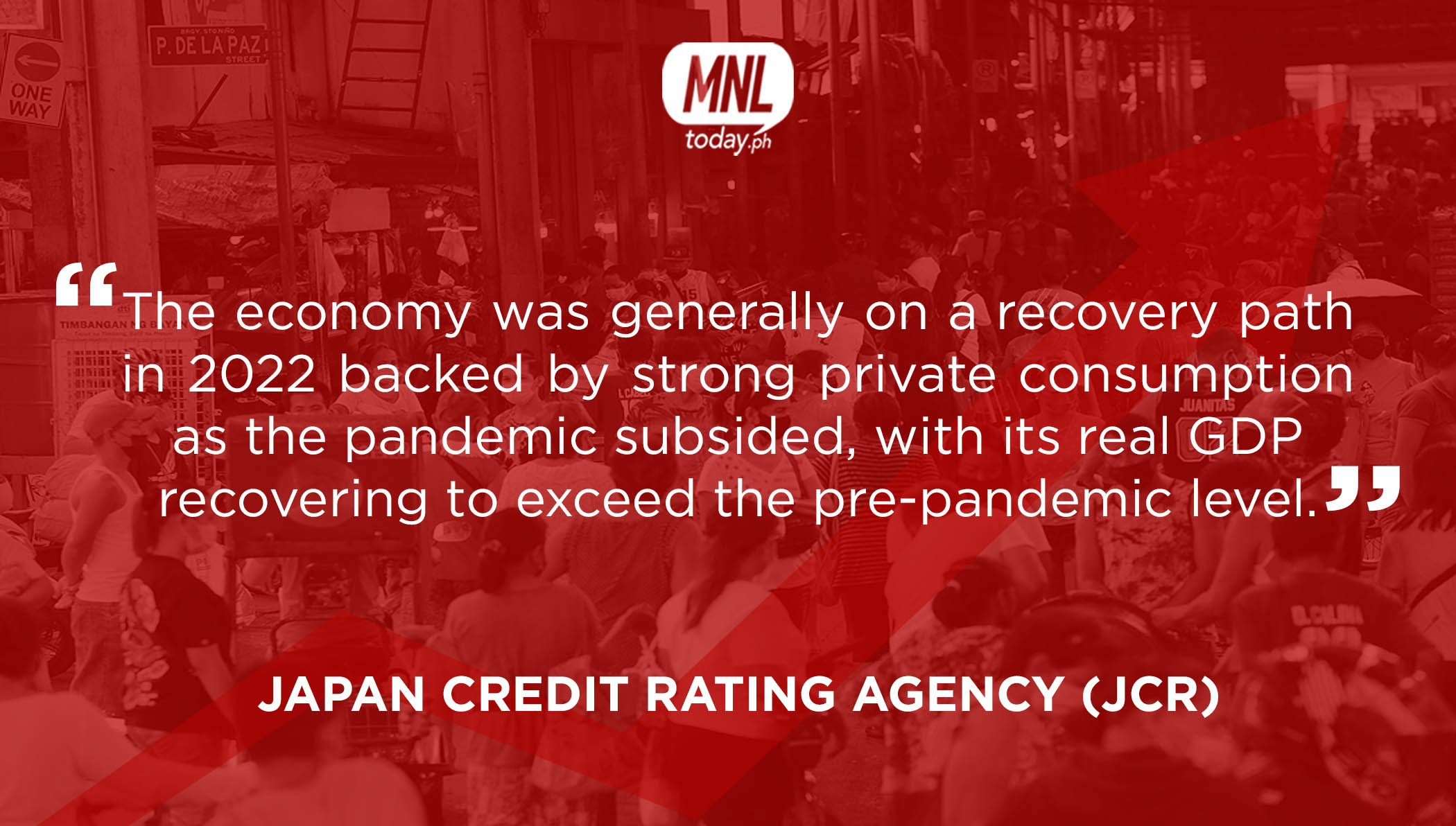Japan Credit Rating Agency (JCR) has affirmed the Philippines’ investment-grade credit rating of A- with a stable outlook as it maintained that the country’s fiscal soundness is intact, but said that income disparity must be addressed.
In a report last March 10, Japan’s leading credit watcher, JCR affirmed the Philippines’ investment-grade credit rating of A- with a stable outlook even amid an environment of high inflation and interest rates, both on the global and domestic front.
JCR said the rating is a reflection of the Philippines’ high and sustained economic growth performance backed by solid domestic demand.
Last year, the Philippine economy grew at an over four-decade high of 7.6 percent.

A credit rating of A- with a stable outlook indicates lower credit risk and entails better access to the international bond market and favorable interest rates.
It also increases investor confidence in the country that may lead to more foreign direct investments (FDI).
The credit watcher also underscored the Philippines’ “resilience to external shocks supported by an external debt kept low relative to GDP and the accumulation of foreign exchange reserves.”
The share of national debt to the country’s output slightly went up to 60.9 percent in 2022 from the 60.4 percent ratio in 2021. This is significantly lower than the 61.8 percent target set under the medium-term fiscal framework.
With this, JCR said it does not consider that fiscal soundness of the Philippines would be harmed, especially as remittances from overseas Filipino workers remain solid.
“JCR holds the view that the country will show its high resilience even when global risk-off moves are triggered again,” it said.
But on the downside, JCR warned that the government should address income disparity in the country.
Under the Philippine Development Plan, the Marcos administration intends to reduce income disparity by enhancing productivity and shifting toward higher-value-added activities and products through agriculture modernization.
Further, the debt watcher said GDP would likely slow to around six percent this year due to the current inflation and policy rate hikes.
Such a rate is within the expectation of the economic team of just a six to seven percent expansion for 2023 amid global headwinds.
As a result of this rating, Finance Secretary Benjamin Diokno said the administration would maintain sound macroeconomic fundamentals to achieve its fiscal targets.

The government commits to continuously implement reforms to foster investment-led growth, which will help broaden opportunities for quality employment and further enhance productivity.






